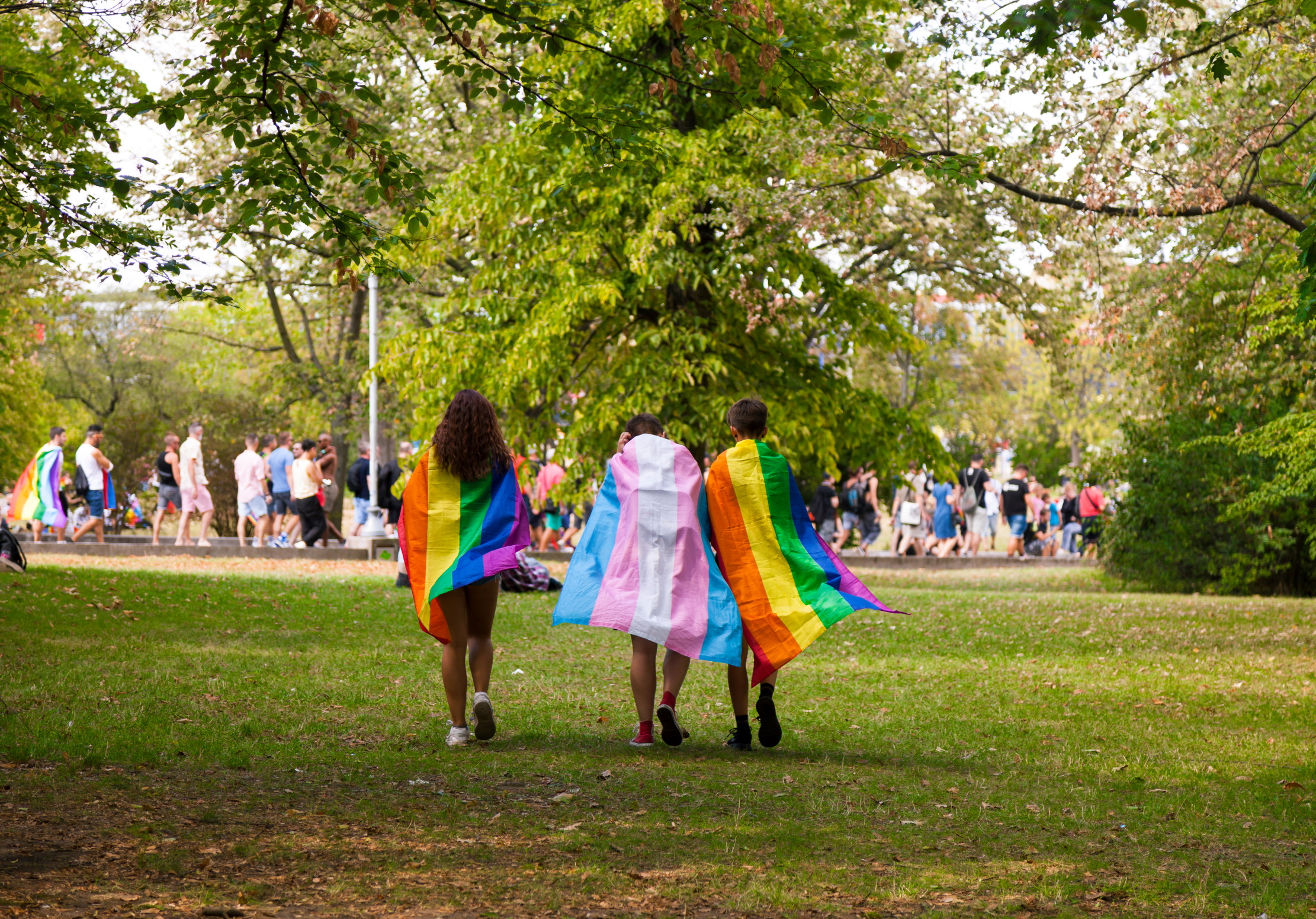The Benefits and Costs of Legalising Same-Sex Marriage in the USA | Dr Kristina B. Wolff
Original Article Reference
This SciPod is a summary of the paper ‘“I Do, I Don’t”: The benefits and Perils of Legalizing Same-Sex Marriage in the United States- One Year Later’, published in the open access journal Humanities. DOI: 10.3390/h6020012.
About this episode
On the 26th of June 2015, the US Supreme Court legalised same-sex marriage across the USA, allowing same-sex couples to be legally recognised as married in all 50 states. In a study conducted one year later, Dr Kristina B. Wolff at The Dartmouth Institute for Health Policy & Clinical Practice, explored some of the benefits and costs of this legalisation for LGBTQ+ communities living in the USA. She introduced a new framework, based on the work of economist Dr Amartya Sen and philosopher Dr Martha Nussbaum, that could encourage long-lasting positive social change.
This work is licensed under a Creative Commons Attribution 4.0 International License. 
What does this mean?
Share: You can copy and redistribute the material in any medium or format
Adapt: You can change, and build upon the material for any purpose, even commercially.
Credit: You must give appropriate credit, provide a link to the license, and indicate if changes were made.
More episodes
Professor Chandra Waring | The Myth of the “Post-Racial” Family: What Multiracial Families Reveal About Race in America
In the United States, families that cross racial lines often attract admiration and curiosity. Such families are increasingly common, and they are seen by many as living proof that love conquers prejudice, and that the country is moving beyond its painful racial past. When a white mother cradles her brown-skinned baby, or a Black father teaches his lighter-skinned daughter to ride a bike, the image seems to embody progress and racial harmony. But as Professor Chandra Waring of the University of Massachusetts Lowell shows in her 2025 study, the story is far more complicated. Her article, titled “My Dad Is Racist as Hell: Navigating Racism, Monoracism, and White Privilege by Proxy in Multiracial Families,” reveals what really happens inside many multiracial households. Through interviews with 30 multiracial Americans, Waring reveals that love does not necessarily cancel racism. In fact, racism, and its quieter cousin, monoracism, often lives right inside these families.
Professor Dr Susanne Maria Maurer | How Social Work Functions as Living Memory of Society’s Deepest Conflicts
Research from Professor Dr Susanne Maria Maurer, former chair of social pedagogy at the Philipps-Universität Marburg, reveals how social work institutions and practices serve as repositories of knowledge about historical struggles over class, gender, and race. She conceptualizes social work as both a “memory of conflicts” and an “open archive” that holds different answers to social problems from across history. Her work shows that to truly understand social work today we need to look at the ideas that were pushed aside and the ongoing debates that still shape how social workers do their jobs.
Dr. Rafael Lenzi | From Magic Tricks to Spycraft: What Espionage Teaches Us About the Human Mind
When we think of spies and their activities, we imagine trench coats, hidden cameras, and tense exchanges in safehouses. Hollywood has given us the daring adventures of James Bond and Jason Bourne, along with the clever trickery of films such as Argo. But behind the cinematic flair lies a quieter, more subtle reality: espionage often depends less on gadgets, weapons and car chases than on the delicate art of deception, an art rooted in psychology, perception, and human behaviour. This is the world explored by Dr. Rafael Lenzi, in a work developed at the Centre de Recherches Sémiotiques in Limoges, France. His study of Cold War espionage, drawing on declassified CIA manuals and philosophical theories of perception, reveals how deception is not just about tricking the eye, but about shaping the mind. In other words, spying succeeds not when someone fails to see, but when they see exactly what they expect to see, and therefore overlook the trickery in front of them.
Dr. Genny Beemyn – Dr. Abbie Goldberg | Beyond the Binary: A New Generation’s Approach to Gender
In the Autumn of 2022, hopeful college students across the United States clicked through the questions on the Common Application, the digital gateway to more than one thousand colleges and universities. For the first time, alongside their grades, essays, and extracurricular lists, applicants had the chance to provide their gender and pronouns. These questions might seem a small detail, tucked between test scores and teacher recommendations, but their impact is enormous. They mark a turning point in higher education, one where students are able to represent themselves more authentically. Thanks to the work of Dr. Genny Beemyn of the University of Massachusetts Amherst and Dr. Abbie Goldberg of Clark University, we now have the first large-scale glimpse into how a new generation of young people is reshaping society’s understanding of gender.
Increase the impact of your research
• Good science communication helps people make informed decisions and motivates them to take appropriate and affirmative action.
• Good science communication encourages everyday people to be scientifically literate so that they can analyse the integrity and legitimacy of information.
• Good science communication encourages people into STEM-related fields of study and employment.
• Good public science communication fosters a community around research that includes both members of the public, policymakers and scientists.
• In a recent survey, 75% of people suggested they would prefer to listen to an interesting story than read it.

Step 1 Upload your science paper
Step 2 SciPod script written
Step 3 Voice audio recorded
Step 4 SciPod published




